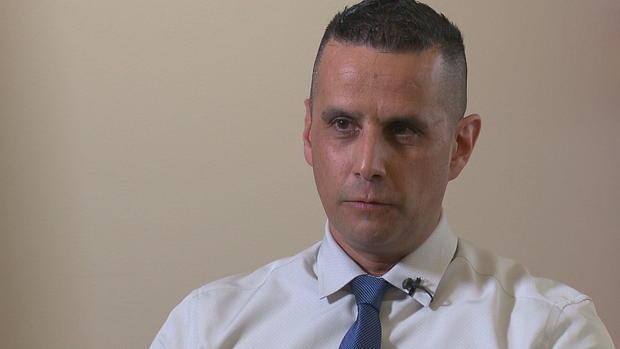How not to fall in love with a Colorado romance scammer and lose hundreds of thousands of dollars
This Valentine's Day -- don't fall for the wrong kind of love.
A CBS News Colorado analysis of federal data shows nationwide, the frequency of romance scams has nearly quadrupled since 2017.
The state of Colorado is number three in the country for states with the most reports of imposter scams, which include romance scams. In the Denver metro area, about 11 out of every 1,000 people fell victim to some kind of scam in 2023, according to data from the Federal Trade Commission.
RELATED: 3rd person pleads guilty in romance scam conspiracy that includes victims in Colorado
Arapahoe County Sheriff's Office Investigator Antonio Hernandez is all too familiar with how devastating romance scams can be. His office gets reports of scammers preying on victims' feelings up to 240 times a year in Arapahoe County alone.
He says the most money he's seen a victim in Arapahoe County hand over to a romance scammer was just shy of $1 million over the course of a year-long relationship.
"Weaponizing love is truly a disgusting concept," Hernandez said.
He says the scams will typically start online on social media or a dating app and can sometimes go for months before the scammer starts asking for cash.
"Usually, it's a targeted audience of older individuals, people that may be a little bit more isolated and have less eyes to keep track of their financial spending," Hernandez explained. "(The scammer) will say, 'I have been the constant in your life over the last six months, I have been the only person that has been reaching out to you, showing you any type of affection.'"
Once the scammers gain your trust, they'll tell you about an investment opportunity, a religious organization, or a personal need they want help with.
Hernandez remembers a case he worked involving a retired man who paid thousands of dollars to a love interest for months.
"This was a daily conversation that involved pages and pages and pages of messages involving requests for thousands and thousands of dollars, which he did provide. He was trying to fund this individual, whom he believed to be living in Africa, and he believed this individual possessed a bag of diamonds and was going to come to the United States and they were going to liquidate the diamonds, and it was going to be worth millions of dollars, and they were going to live together off that money," Hernandez recalled.
"When I talked to the individual, he didn't really want to believe that this was a scam," he continued. "We got the family involved, and this individual didn't want to believe the family. It just speaks to how good these people are with regard to the really gross things they say to these people. It's a connection through love, a connection through God. In this case, they were saying, 'I really do believe that God put us together.'"
Once the money's gone, Hernandez says it's nearly impossible to get it back, because most of these criminals are overseas.
"There are really tough conversations that I have to have sometimes," Hernandez said.
Even still, he encourages victims to report it, because he says it could help federal and international investigators bust criminal rings.
"There are instances, specifically talking about these international organizations where federal law enforcement agencies have been able to piece together cases from all over the United States that had similar MOs, and through that, they were able to make much larger cases," Hernandez said. "The larger a case gets, and the more people are affected by any one organization, the easier it is for federal agencies to work with international law enforcement to hold people accountable."
RELATED: Woman pleads guilty to scamming Holocaust survivor out of his life savings
Hernandez also says reporting to law enforcement will help if your personal information has been stolen, explaining that the first things banks will ask for if you report a scam is a police report number.
Asked how to prevent yourself from falling in love with the wrong person, Hernandez says to stay vigilant of red flags.
He says to watch out for things like your love interest not wanting to share photos of themselves, meet in person, or do video chats. He says another red flag is if your love interest tries to pressure you into sending money right away, and tells you not to tell anyone about the investment opportunity or charitable donation request.
"Eventually, situations tend to become high-pressure situations," Hernandez said.
Ultimately, Hernandez says many romance scams go unreported due to the embarrassment some victims feel. He says if you start to feel that something isn't right with your new online lover, don't hesitate to reach out to law enforcement.
"We're talking about intimate conversations that take place over the internet. It's going to be hard to convince somebody to bring in another set of eyes... we may not want to share those details with people we know, for fear that will bring embarrassment," Hernandez said. "So, if you're uncomfortable talking about a situation with somebody that you know, try somebody that you don't know. Call the sheriff's office, call a police department."





